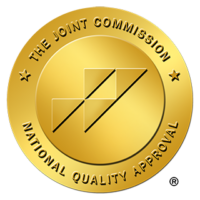Alcohol Detox
Many people who become dependent on alcohol didn’t initially drink to become addicted.
Most started as occasional drinkers, only consuming alcohol during social gatherings or special events. However, alcohol has a significant impact on the brain, causing a temporary feeling of euphoria that can temporarily mask negative emotions. With repeated exposure, the brain begins to associate drinking with feeling good, leading to binge drinking, alcohol abuse, and eventually addiction.
Once someone is addicted, they may attempt to quit drinking but face withdrawal symptoms and intense cravings that lead them back to alcohol. Professional treatment is necessary to address these cravings and manage the withdrawal symptoms.
The first step in treating an alcohol addiction – the most severe stage of an alcohol use disorder – is detox.
On this page, you’ll learn what alcohol detox is, the types of detox, what occurs in detox, and the stages of alcohol detox. You’ll also learn how detox can lead to withdrawal syndrome and how it’s treated.
What Is Alcohol Detox?
Individuals with alcohol use disorder (AUD) – a type of alcohol dependence – must detox from alcohol before undergoing treatment. Detoxification is a natural process the body does to remove waste.
When it comes to alcohol, the liver breaks it down into a less toxic substance before ushering the byproduct through the small intestines for excretion. However, about 5% of alcohol leaves the body through urination, sweat, and breathing. According to the California Department of Alcoholic Beverage Commission, the only way to detox the body of alcohol is to allow the liver to break it down.
In some cases, people can safely detox at home. However, individuals with AUD run the risk of developing life-threatening withdrawal symptoms when abstaining from alcohol or detoxing. For these reasons, they are advised to detox at a facility under medical supervision.
What Happens During Detox?
Anyone suffering from AUD or addiction needs to abstain from drinking and detox from alcohol before receiving treatment. Alcohol detox involves a multistep process that has been specially designed to minimize the risks associated with sudden withdrawal and to reduce the risk of relapsing.
These steps include:
- Abstaining: To kickstart the detoxing process, one must stop drinking or ingesting alcohol-based products. This includes mouthwash, cooking alcohol, and certain medications.
- Assessment and Intake: During this step, a licensed professional will ask questions about the client’s drinking history. They will also gather information about their life experiences, mental health, and medical history. Some may even undergo a psychiatric examination to assess their current mental health status. This can help pinpoint the right alcohol addiction treatment and weed out conditions that mimic alcoholism.
- Detox: Natural detox happens within eight hours; however, excessive drinking can extend this time. During the first three days of detoxing, individuals with AUD will experience many withdrawal symptoms (alcohol withdrawal syndrome) and may require medication for assistance. Alcohol withdrawal syndrome can continue for weeks after abstaining. Depending on the need, the detox process can last anywhere from a few hours to a few weeks.
- Aftercare: After detoxing, some individuals will require ongoing support to remain sober. They may attend Alcoholics Anonymous meetings, take part in an inpatient program, or attend peer support groups. Some recovering alcoholics might also undergo medication-assisted treatment to control the symptoms of alcohol withdrawal syndrome.
The Alcohol Detox Process
Throughout the entire alcohol detox process, individuals with AUD are monitored for discomfort and changes in their vital signs. They may receive IV fluids or other supplemental treatments to remain comfortable and stable, while others are provided medications to treat withdrawal.
This is an example of a typical detox process, though it can differ from individual to individual.

What Are Alcohol Withdrawal Symptoms?
Alcohol withdrawal symptoms appear within the first eight hours of abstinence and continue for several days to several weeks. These symptoms are the same as those listed above. However, additional symptoms can present at this time and continue throughout detox.
They include:
- Anxiety
- Nervousness
- Fatigue
- Nightmares/night terrors
- Cloudy thinking
- Feeling on edge
- Enlarged pupils
- Pale skin
- Increased heart rate
- Irritability
Post-Acute Withdrawal Syndrome
After the abstinence period, some people develop post-acute withdrawal syndrome (PAWS). This is a neurological condition brought on by changes in the brain as a result of alcohol abuse. Individuals can experience the symptoms of PAWS for anywhere from a few weeks to a few years after detoxing.
PAWS symptoms include:
- Hypervigilance
- Hyperarousal
- Irritability
- Difficulty concentrating
- Poor memory
- Loss of interest in once pleasurable activities
- Urge to drink
- Feeling exhausted/tired
- Slurred speech
Individuals with this condition will need ongoing support after rehabilitation and detox to reduce their risk of relapsing. To treat some of the above-listed symptoms, they may receive a medication called Gabapentin. Gabapentin can treat a lack of motivation, hypervigilance, and difficulty sleeping. However, this medication is not FDA-approved for this use.



Is Alcohol Withdrawal Life-Threatening?
Yes. Sudden alcohol withdrawal is life-threatening. Individuals with AUD or a serious addiction are at a higher risk of suffering life-threatening complications from alcohol withdrawal, like a heart attack or stroke, than those without these conditions. For this reason, it’s important to detox under the guidance and supervision of a trained medical professional.
Types of Alcohol Detox
Currently, there are two types of alcohol detox provided by a rehabilitation center: inpatient detox and outpatient detox.
Finding the Right Alcohol Detox
Treatment Facility for You
Alcohol detox treatment is difficult, but with the right support network, it will get easier. The first step in healing from alcohol addiction is to admit you have a problem and then seek professional support to help devise a treatment plan that works for you.
If you’re ready to make that call, contact Engage Wellness Acton, MA today. We’re available 24/7 to answer any questions you may have about alcohol detox or alcohol addiction treatment plans.










